Cloves are the dried flower buds of the Syzygium aromaticum tree, native to the Maluku Islands in Indonesia. These tiny, dark, nail-shaped buds are harvested before they open and then dried in the sun, which intensifies their fragrance and flavor.
Cloves are one of the most aromatic and versatile spices used in kitchens worldwide. Known for their strong, warm, and slightly sweet flavor, they add depth and complexity to both sweet and savory dishes. This guide covers everything you need to know about cloves, from their origins to practical uses in cooking and wellness.
Table of Contents
What Is Cloves Spice?
The main compound responsible for the distinctive taste and aroma of cloves is eugenol, a powerful essential oil that gives cloves their medicinal and aromatic qualities. This makes cloves more than just a flavor enhancer—it's a powerhouse of health benefits as well.
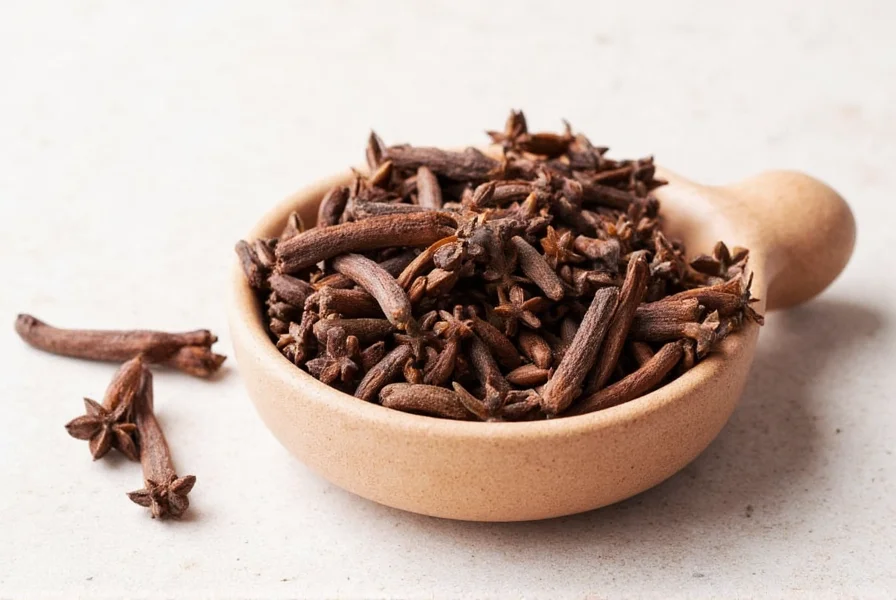
Common Uses of Cloves in Cooking
Cloves are a staple in many global cuisines. Here are some of the most common ways they're used:
- Spiced Beverages: Cloves are often added to mulled wine, spiced cider, and hot chocolate for a warm, aromatic kick.
- Curries and Stews: In Indian, Middle Eastern, and Southeast Asian cuisines, cloves are a key ingredient in spice blends like garam masala and ras el hanout.
- Baking: Cloves are used in pies, cookies, and cakes—especially in holiday recipes like gingerbread or pumpkin pie.
- Pickling and Preserving: Cloves help preserve fruits and vegetables while adding a unique flavor.
- Meat Rubs and Marinades: They enhance the flavor of roasted meats, especially pork and chicken.
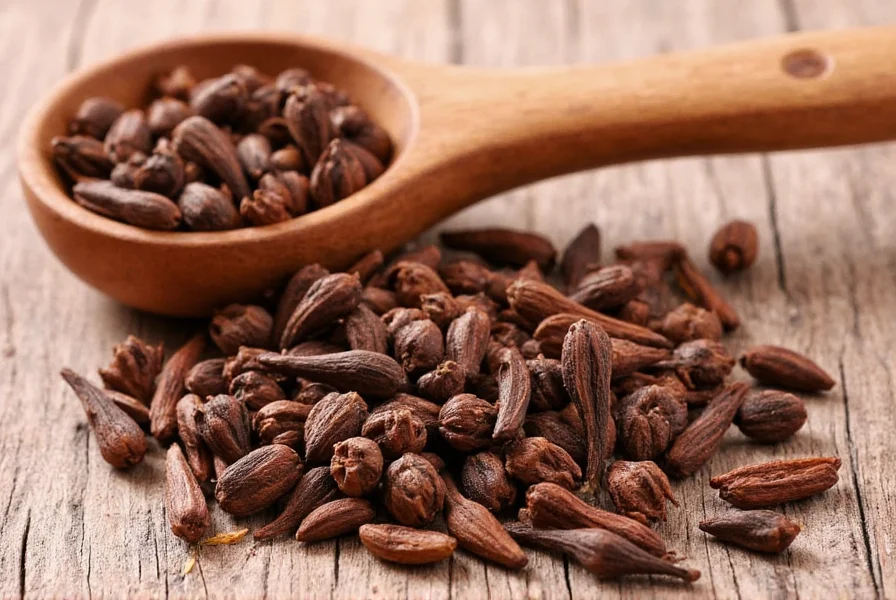
Health Benefits of Cloves
Beyond their culinary uses, cloves offer a range of health benefits. Here are a few notable ones:
- Antioxidant Properties: Cloves are rich in antioxidants that help fight free radicals and reduce oxidative stress.
- Dental Health: Eugenol has antiseptic and analgesic properties, making cloves useful for relieving toothaches and gum pain.
- Anti-inflammatory Effects: Cloves may help reduce inflammation and support overall immune function.
- Digestive Aid: Cloves can help soothe digestive issues like bloating and gas when consumed in small amounts.
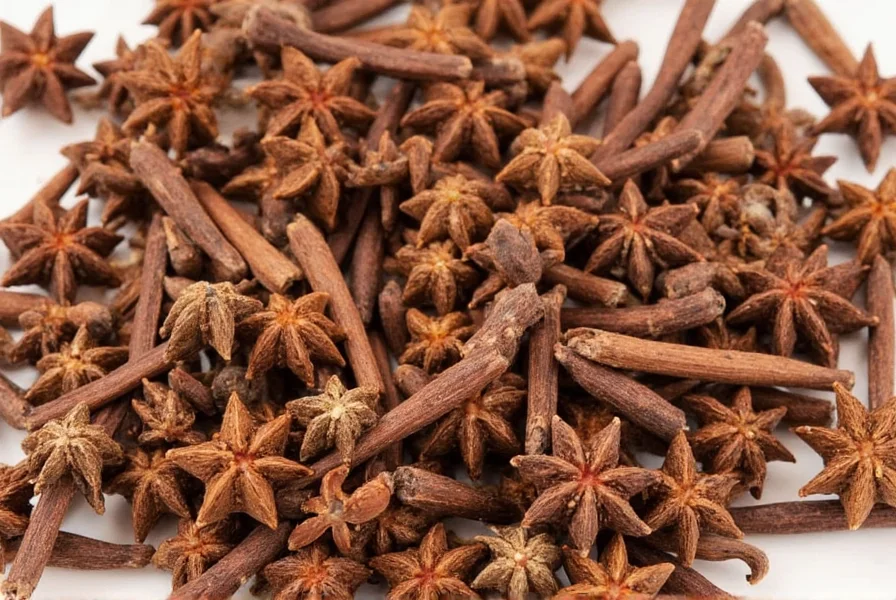
Buying Guide for Cloves
| Feature | Description |
|---|---|
| Appearance | Dark brown, hard, and pointed at the tip. Avoid dull or discolored buds. |
| Smell | Strong, sweet, and slightly spicy. A weak scent means they may be old or low quality. |
| Texture | Firm and dry. Soft or moist cloves may be improperly stored. |
| Origin | Indonesian cloves are generally considered the highest quality. Look for labels indicating origin. |
| Package Type | Choose whole cloves rather than ground if possible, as they retain their flavor longer. |
Here are a few recommended products for your kitchen:
- Indonesian Cloves (Whole): Ideal for grinding yourself. Great for baking, meat rubs, and pickling.
- Clove Essential Oil: For aromatherapy, oral care, or topical use (diluted). Use sparingly.
- Clove Powder: Perfect for spice blends and baked goods. Best used within a year for optimal flavor.
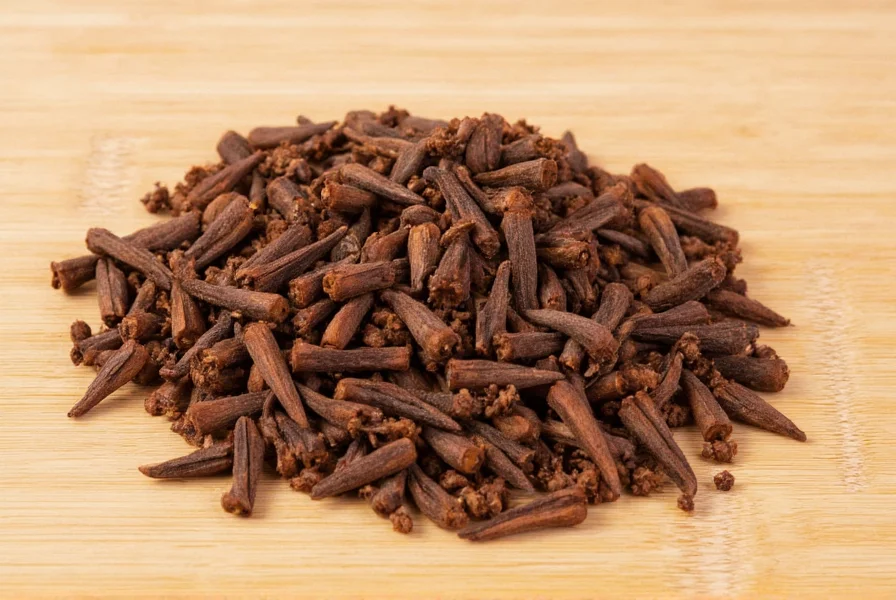
Practical Tips for Using Cloves
Whether you're a seasoned chef or a home cook, here are some practical tips to get the most out of your cloves:
- Use Sparingly: Cloves are very potent. A little goes a long way—start with a single clove and adjust as needed.
- Toast Before Using: Toasting cloves in a dry pan or oven enhances their flavor and aroma.
- Grind Fresh: Whole cloves can be ground using a mortar and pestle or spice grinder for maximum freshness.
- Pair with Other Spices: Cloves work well with cinnamon, nutmeg, and allspice. Try combining them in holiday spice blends.
- Make Your Own Syrup: Add a few cloves to simple syrup for a flavorful addition to drinks and desserts.
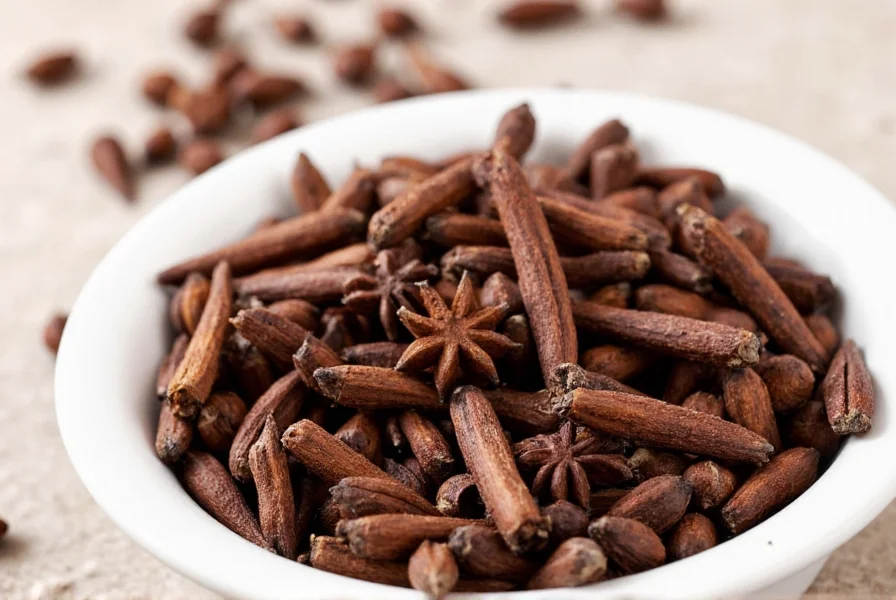
Frequently Asked Questions About Cloves
What exactly are cloves?
Cloves are the dried flower buds of the Syzygium aromaticum tree, native to the Maluku Islands (also known as the Spice Islands) in Indonesia. They're harvested before the flowers open and then sun-dried, which intensifies their flavor and aroma.
What do cloves taste like?
Cloves have a strong, warm, and slightly sweet flavor with a pungent, spicy aroma. They contain eugenol, which gives them their distinctive taste and slight numbing quality. Due to their intensity, they should be used sparingly in cooking.
Where do cloves come from?
Cloves are native to the Maluku Islands (also known as the Spice Islands) in Indonesia. Today, they're also grown in other tropical regions including Zanzibar, Madagascar, India, and Sri Lanka, but Indonesian cloves are generally considered the highest quality.
How should I store cloves to keep them fresh?
Store whole cloves in an airtight container in a cool, dark place. Properly stored, they can retain their flavor for up to one year. Ground cloves lose their potency more quickly and should be used within 6 months. For longer storage, you can keep them in the freezer.
What are the main health benefits of cloves?
Cloves are rich in antioxidants and contain eugenol, which has antiseptic and analgesic properties. They may help with dental health (relieving toothaches), have anti-inflammatory effects, aid digestion, and support immune function. However, they should be consumed in moderation as part of a balanced diet.
Can I substitute ground cloves for whole cloves in recipes?
Yes, but with caution. As a general rule, 1/4 teaspoon of ground cloves equals approximately 1 whole clove. Remember that ground cloves have a more immediate and intense flavor, while whole cloves release flavor more slowly during cooking. If substituting, start with less than you think you need and adjust to taste.
Conclusion
Cloves are more than just a spice—they're a flavor powerhouse with a rich history and numerous benefits. Whether you're using them in your favorite recipes, exploring their health properties, or simply enjoying their warm, inviting aroma, cloves have something to offer everyone. So next time you reach for a spice, don't forget to give cloves a try. You might just discover a new favorite!

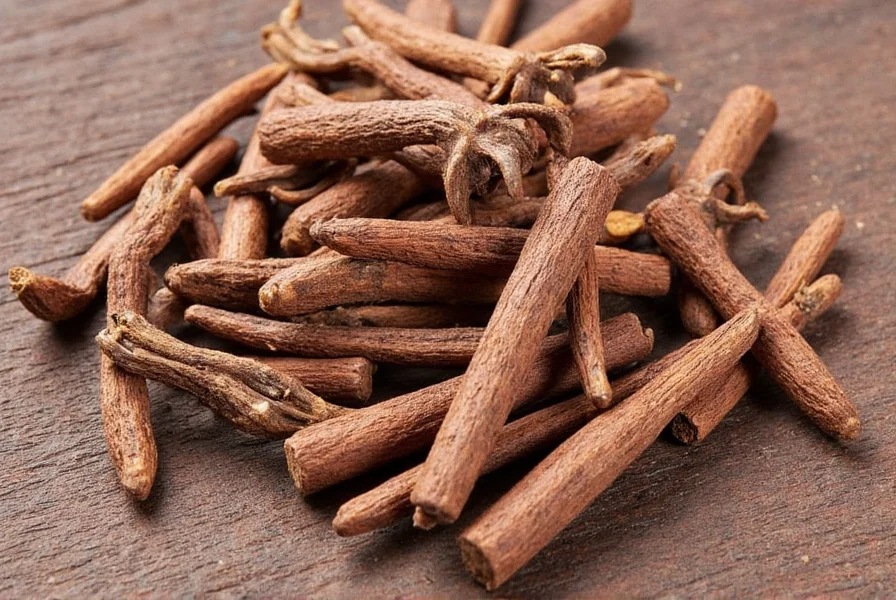









 浙公网安备
33010002000092号
浙公网安备
33010002000092号 浙B2-20120091-4
浙B2-20120091-4